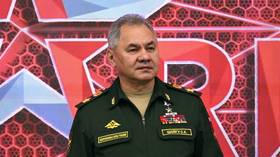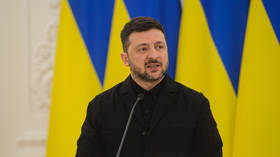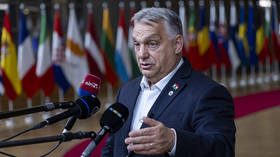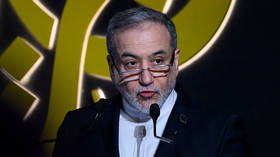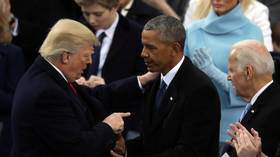Some Soviet weaponry still better than modern Western equivalents – Shoigu

Western weapons being sent to Ukraine, as well as NATO tactics being taught to Kiev’s commanders, have failed to provide an upper hand on the battlefield, Russian Defense Minister Sergey Shoigu has said.
Speaking at the Moscow Conference on International Security on Tuesday, the minister noted that Russia is currently fighting “not just the Armed Forces of Ukraine, but the entire collective West,” which he claimed has also recently been joined by several Asia-Pacific states.
Nevertheless, Shoigu insisted that Western countries have lost their leadership in the military sphere since the start of Russia's operation in Ukraine and that “it has become obvious that the use of Western weapons and NATO methods of planning operations cannot ensure superiority on the battlefield.”
Shoigu argued that the Ukraine conflict has shown there is “nothing unique or invulnerable for Russian weapons” and that even some Soviet-era weapons have proven to be superior in combat to their modern Western equivalents.
As proof of the West’s failure to ensure Kiev’s success in its much-lauded counteroffensive, Shoigu pointed to the high number of casualties the Ukrainian army has sustained in recent months.
“Despite all-round assistance from the West, the Armed Forces of Ukraine fail to achieve results,” he claimed, pointing out that the “preliminary results of the hostilities show that Ukraine’s military resource is almost exhausted.”
According to Russian Defense Ministry estimates, Kiev’s forces have lost some 43,000 soldiers since they launched their counteroffensive in early June, seeking to break through Russian defenses. They have also reportedly lost some 5,000 pieces of heavy equipment, including dozens of Western tanks and combat vehicles.
During his speech on Tuesday, Shoigu suggested that the conflict in Ukraine is actively lining the pockets of the US defense industry, which, under the guise of supporting Kiev, is clearing the military arsenals of its partners in Europe in order to sell them new products.
“Partners will have to pay a lot of money to the US for new weapons and agree to limit sovereignty in the security sphere,” Shoigu said, adding that “Europe can serve as an example, where defense policy is completely subordinated to the interests of Washington.”
